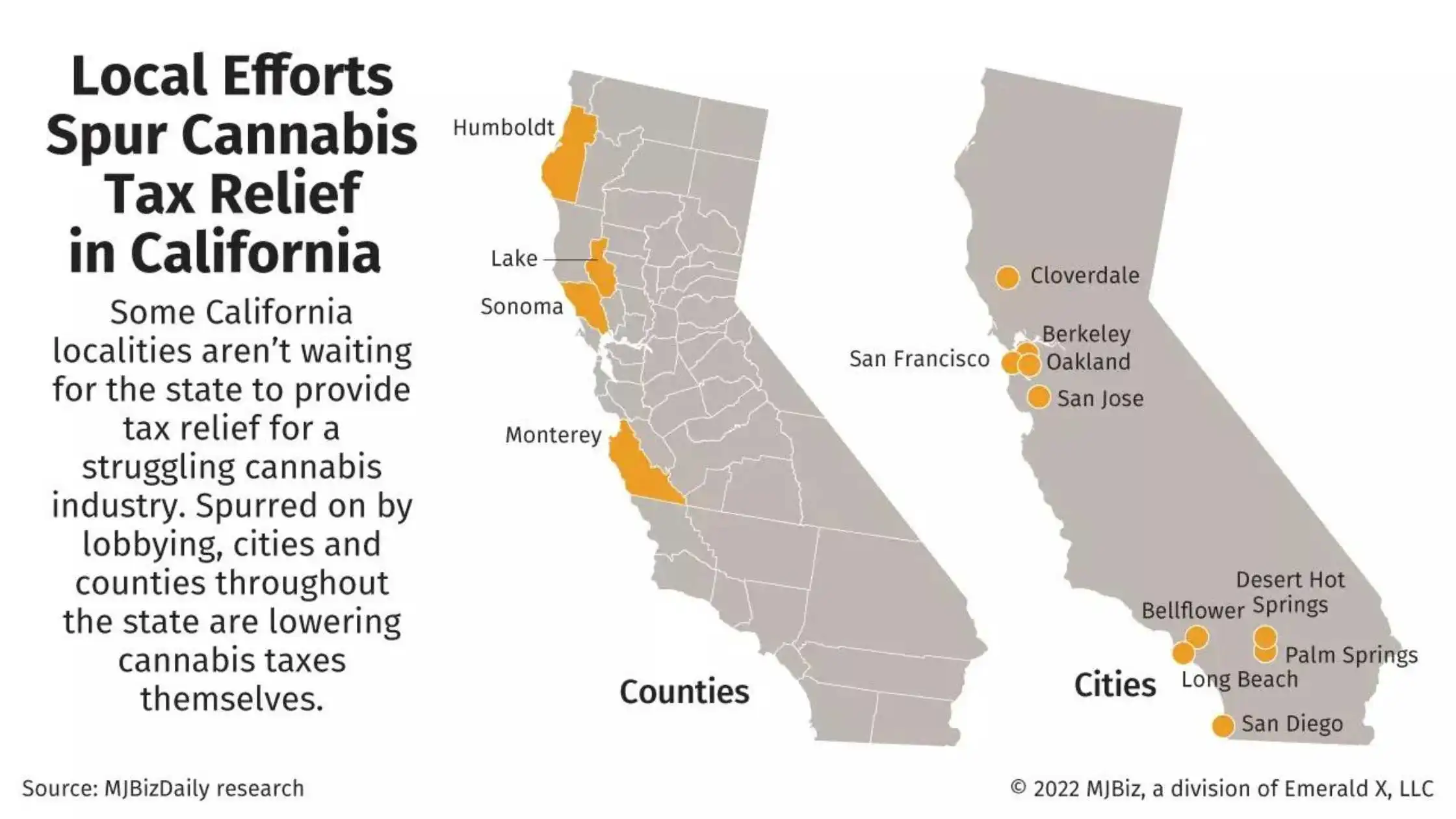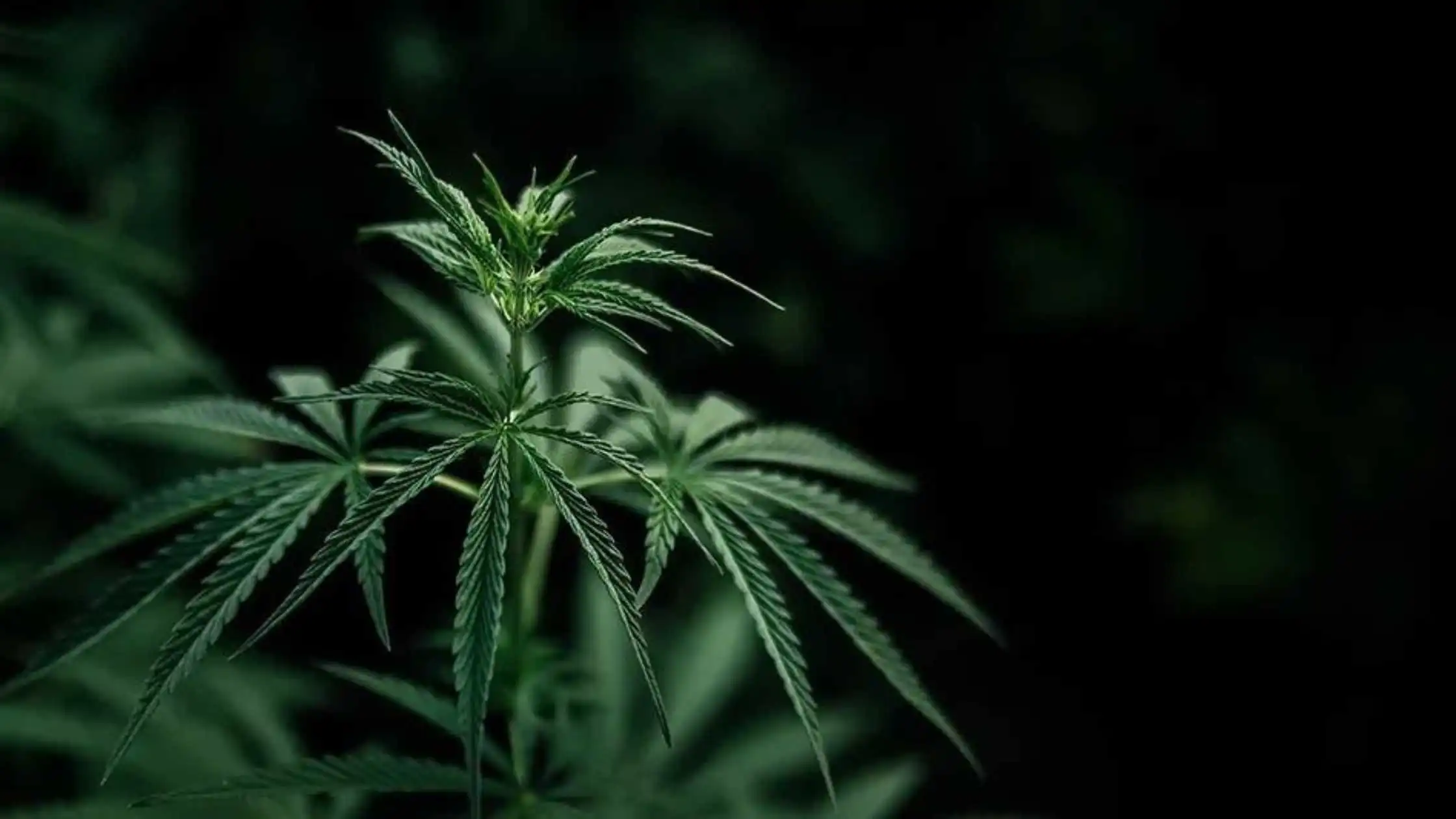Since state lawmakers have been slow to lower marijuana taxes, local governments throughout California are scrambling to grant tax relief to cannabis businesses.
The tax rollbacks by cities and counties mainly reflect lobbying from industry organizations, residents, and businesses.
They argue that taxation at all levels of the supply chain is simultaneously choking cannabis companies’ ability to stay afloat while strengthening the illicit market.
The rush to grant tax relief began two years ago and has since accelerated.
It has encompassed a range of localities, including the cities of Desert Hot Springs and San Diego and Humboldt and Sonoma counties.
“This is really a statewide issue,” explained Natalynne DeLapp, executive director of the Humboldt County Growers Association.
All this comes against the backdrop of a historic bear market for California wholesale cannabis prices, which plummeted last year in response to a supply glut.
Prices have only recently begun to rebound.
The tax rollbacks also come amid accusations from operators, local lawmakers, and industry insiders that the state has not done enough to adequately address tax reform, among other ills, leading to what many are calling a crisis in California’s cannabis industry.
Marijuana license holders in California are subject to a state cultivation tax of $161 per pound and a 15% excise tax, in addition to taxes levied by city and county officials.
In January, Gov. Gavin Newsom pledged tax reform, though he was light on details.
Four bills at the state level addressing cannabis taxation have been introduced in the past few weeks: Assembly Bill 2792, AB 2506, Senate Bill 1281, and SB 1293.
SB 1281 is the most comprehensive. Among other things, it would eliminate the cultivation tax and reduce the excise tax to 5%.
With constituents screaming for relief, localities are not waiting for state tax changes to kick in, especially considering that such legislative actions wouldn’t take effect until 2023.
One of the most high-profile moves took place in Humboldt County on February 7, when the Board of Supervisors voted to reduce by 85% the county cultivation tax, locally known as Measure S.
Measure S previously required a $1-$3-per-square-foot payment, the amount of which was dependent on the license type. Those fees will be calculated similarly, but growers will pay only 15% of the total amount.
Temporarily lowering the cultivation tax showed the county’s “commitment to growers who have committed $50 million to our local economy in the four years since Measure S was passed,” Humboldt County Supervisor Rex Bohn said.
The reduction was met with some opposition from locals who believe cannabis growers got off easy by not having to pay taxes before legalization.
Bohn said this came into stark relief once it became clear that many of the same growers are now choosing to leave their gardens fallow rather than risk planting and paying taxes on marijuana flowers they can’t sell.
Though Humboldt might be one of the more significant actions taken, it’s far from the only one.
“Most cities and counties set their local tax rates based on an assumption that cannabis businesses were going to be wildly profitable,” DeLapp said.
“The reality is that, in many places, those tax rates are no longer sustainable, particularly for small and independent legacy businesses who are operating without outside capital.”
Cannabis lobbyist Nara Dahlbacka, a partner at the Oakland-based Milo Group, said that while tax relief is needed at the state and local levels, localities enacting reform can “also be a huge help on the red tape side” for businesses.
“In order to expand their (marijuana) businesses, there’s a level of red tape and bureaucracy that have to be dealt with at the local and state levels,” Dahlbacka said.
The following localities have, or are considering, cannabis tax reductions and relief:
Humboldt County
- This month, the Board of Supervisors voted to temporarily reduce its cultivation tax by 85% for one year.
Lake County
- In January, the Board of Supervisors voted to postpone until May 15, the due date for cannabis tax payments, and suspend the 25% late-payment penalty during the postponement. The board also directed staff to develop additional options for cannabis tax relief for ongoing discussion and voting in future meetings.
Monterey County
- The Board of Supervisors is preparing to vote on March 1 on an industrywide cultivation tax reduction, including eliminating automatic increases on all taxes and doing away with the distribution tax entirely.
- After freezing an automatic tax increase on growers previously scheduled for 2021-22, the board voted last October to increase the number of times growers could amend the taxable square footage of their crop canopy from once to twice per year.
Sonoma County
- The Board of Supervisors postponed first-quarter taxes from January 31 to April 30. Total taxes levied for both quarters will be due without penalties or interest on April 30 unless the board approves another extension.
Bellflower
- In October 2020, local officials reduced taxes for manufacturing and distribution from 7.5% to 2% and 1%, respectively.
Berkeley
- In February 2018, local officials reduced the cannabis tax rate from 10% to 5% to remain competitive in the Bay Area.
Cloverdale
- The City Council is scheduled to vote on March 9 to reduce tax rates for all licensees and tier the tax rates for different types of licenses.
Desert Hot Springs
- In February 2021, local officials reduced the tax for cultivation from $25.50 per square foot to $10.20 per square foot for cultivation.
Long Beach
- In 2019, the city lowered manufacturing, distribution, and testing taxes from 6% to 1%.
- In 2020, the City Council agreed to ditch a proposed tax increase and instead increased the hours of operation for cannabis retailers.
Oakland
- In 2019, the City Council voted to lower the gross receipts tax on cannabis businesses that make $500,000 or less from 10% to 0.12%.
Palm Springs
- In February 2019, local officials reduced the manufacturing tax from 10% to 2%.
San Diego (city)
- In February, the City Council voted to reduce the manufacturing and cultivation tax from 8% to 2%, effective May 1.
San Francisco (city)
- In December 2021, San Francisco authorities approved a second one-year suspension of the city’s marijuana business tax through 2023.
San Jose
- In July 2019, local officials reduced the flat-rate taxes of 10% to 4% for cultivation, 3% for manufacturing, 2% for distribution, and 0% for testing.
Additionally, according to Dahlbacka, the following localities have passed resolutions formally requesting the state to amend its cannabis taxes:
- Alameda County
- Calaveras County
- Lake County
- Mendocino County
- Monterey County
- San Francisco (city and county)
- Santa Cruz County
- City of Berkeley
- City of Desert Hot Springs
- City of Oakland
- City of Rio Dell
Disclaimer: https://mjbizdaily.com/california-localities-extend-tax-relief-to-marijuana-companies





